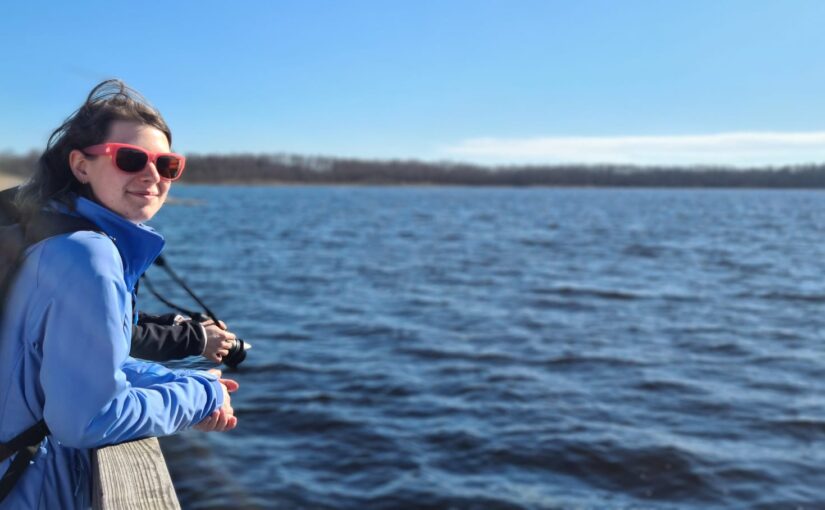Field of study in Wageningen: Bachelor Plant Sciences
Study period exchange: 19/02/2024 – 25/06/2024
Country (exchange): Poland
City (exchange): Warsaw
University (exchange): Warsaw University of Life Sciences (SGGW)
Faculty (exchange): Horticulture (mostly)
2. Motivation for exchange
Why did you choose to go on study exchange?
I wanted to have a change of scenery, get out of my comfort zone and experience a university and culture abroad.
What is the reason you chose for this country?
In truth the country was not very important to me, I chose this country mainly because the university had courses in my field of study, an additional plus was that the expenses were slightly lower than in the Netherlands.
What is the reason you chose for this university?
This university had a lot of courses in my field of study accessible in English that seemed interesting to me. The university also had a good ranking in Poland itself and seemed to have good facilities. Dormitories were also relatively easy to acquire through the university so that was amazing (compared to housing situation in Netherlands).
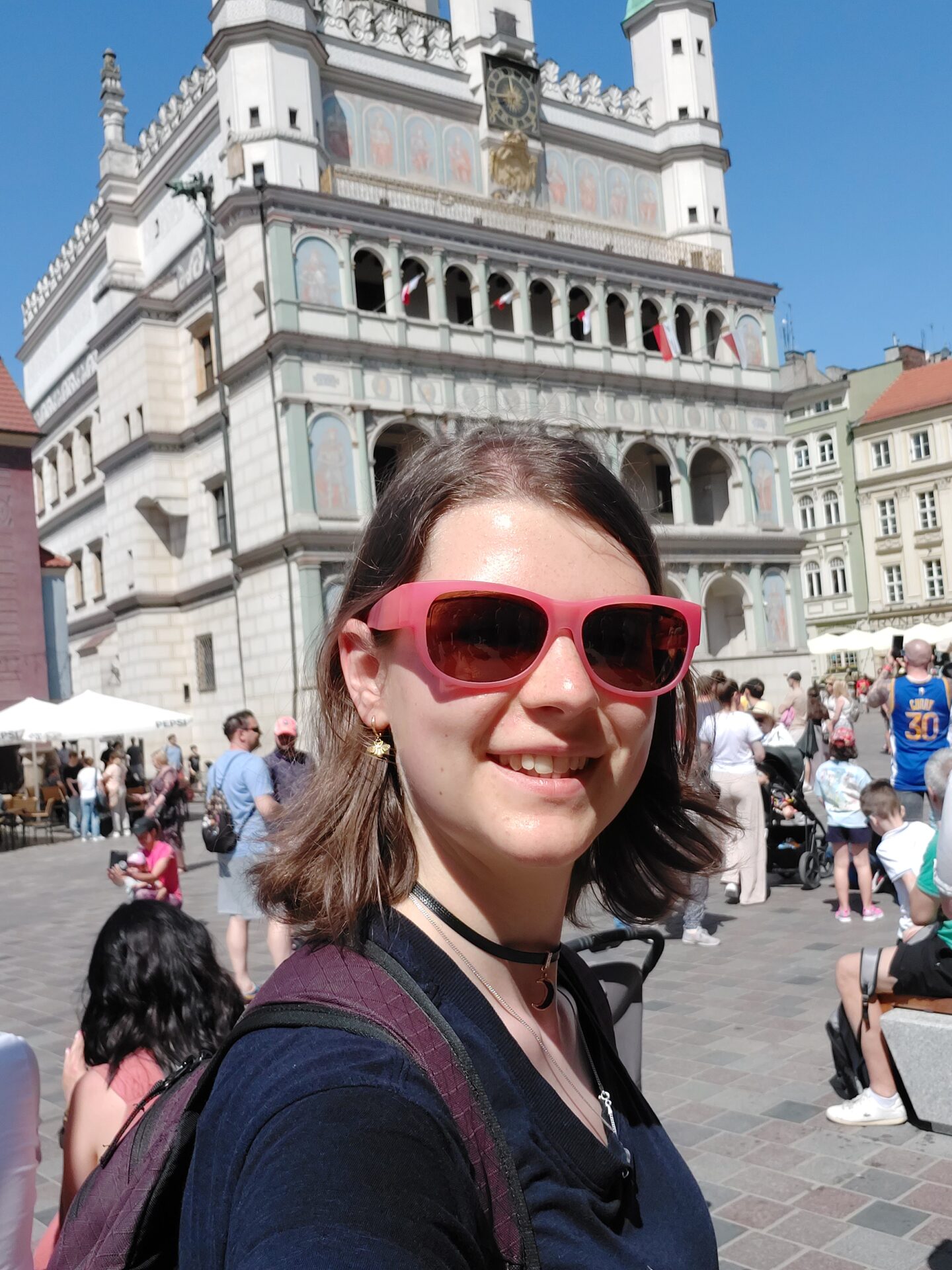
3. Accessibility to reach destination
Do you have any advice about reaching your exchange destination?
If you have luggage I would strongly advise you to use an uber (which is often the cheapest taxi option) when coming from the airport or a train station. While there is great public transport, the airport and station busses are often quite busy and you will have trouble with your luggage. Also keep in mind a taxi will not fully reach the campus and will drop you at the gate, as they need to pay to get in. It’s not long walking to the dorms but don’t take 5 suitcases.
4. University and studying
Could you provide some general information about the followed courses?
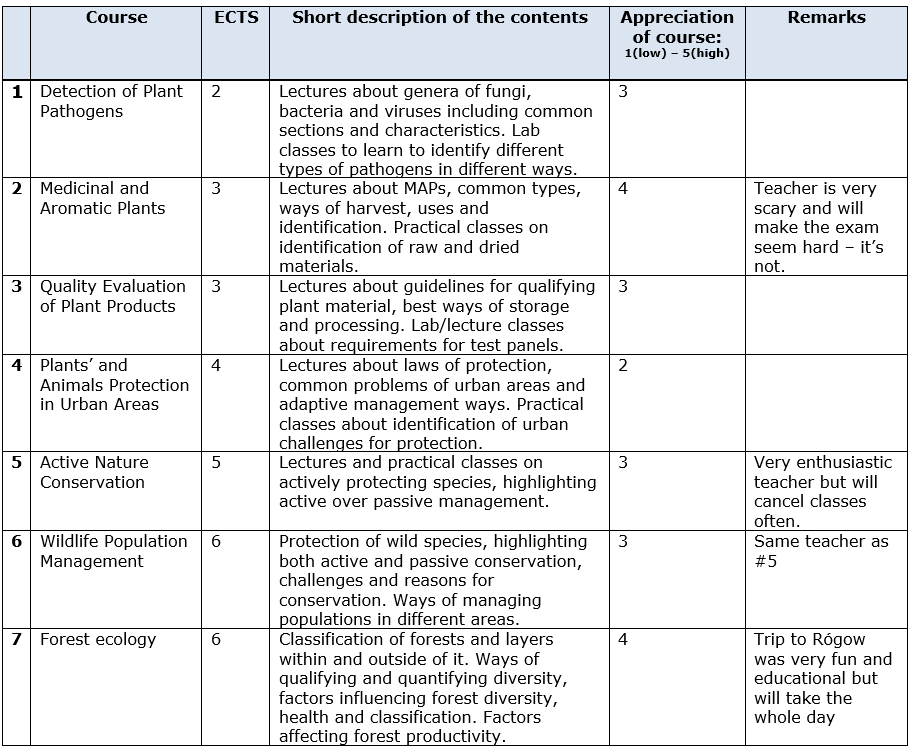
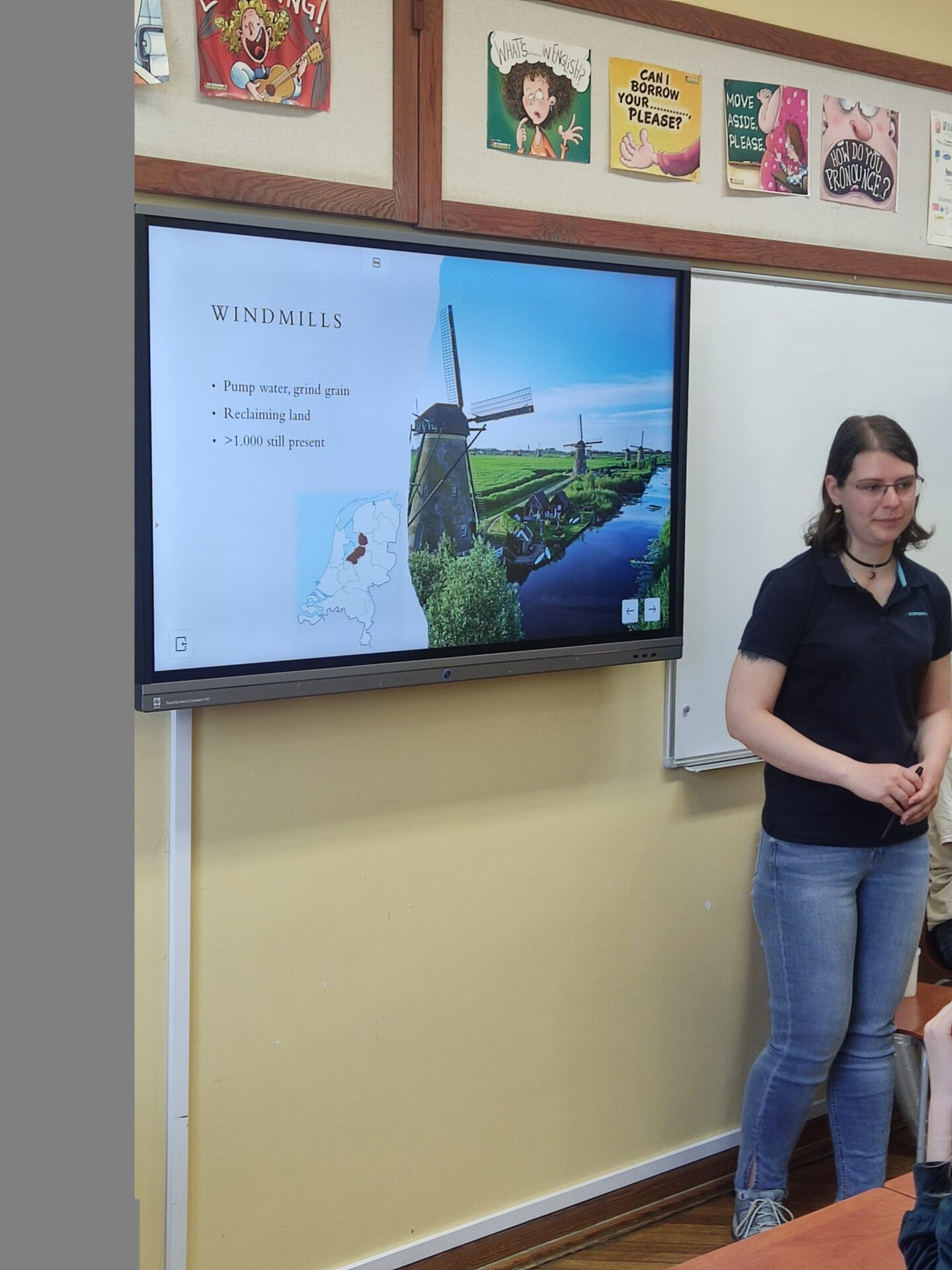
I had sufficient possibilities to select suitable courses that were taught in English:
Yes, even before arriving in Poland, the list of Erasmus courses was extensive so I had plenty of choices in case some of my preferred courses would not be given.
I had sufficient possibilities to select suitable courses in my field of interest:
Yes, while the field was more horticulture-oriented or forestry-oriented, this still interested me and it was not something I extensively studied at my home university. Each faculty had an extensive list of available courses to choose from.
I am satisfied with the level of the courses that I followed:
No, when compared to the level of my home university, the courses abroad were incredibly easy regarding content and type of examination. Compared to my home university, the course information was less in-depth and the examination was more basic. Examinations were short compared to what I am used to.
I am satisfied, in the end, with the selection of courses I followed:
Mostly I was satisfied, I did learn new things in most of my courses and the teachers were adequate. However, some courses had teachers that really struggled speaking English and were therefore hard to understand sometimes. Moreover, the level of material of some courses were too easy to what I am used to at Wageningen, therefore I was a bit bored sometimes. I did really enjoy the practical classes and excursions that my courses organized.
What is it like to study there?
Compared to WUR, the lessons, schedules, examinations and teachers are incredibly chaotic and disorganized. You will have all your classes throughout the whole semester, there are no periods. Most courses are given on one day of the week. I did not need any books or readers. It is very advisable to take notes because due to privacy reasons, some teachers will not share their PowerPoints. At the beginning of the semester, you will get a file with the schedule of all courses, and then it is up to you to fill in your own schedule, if your OLA courses overlap, it is up to you to change and coordinate them, or switch them for other courses.
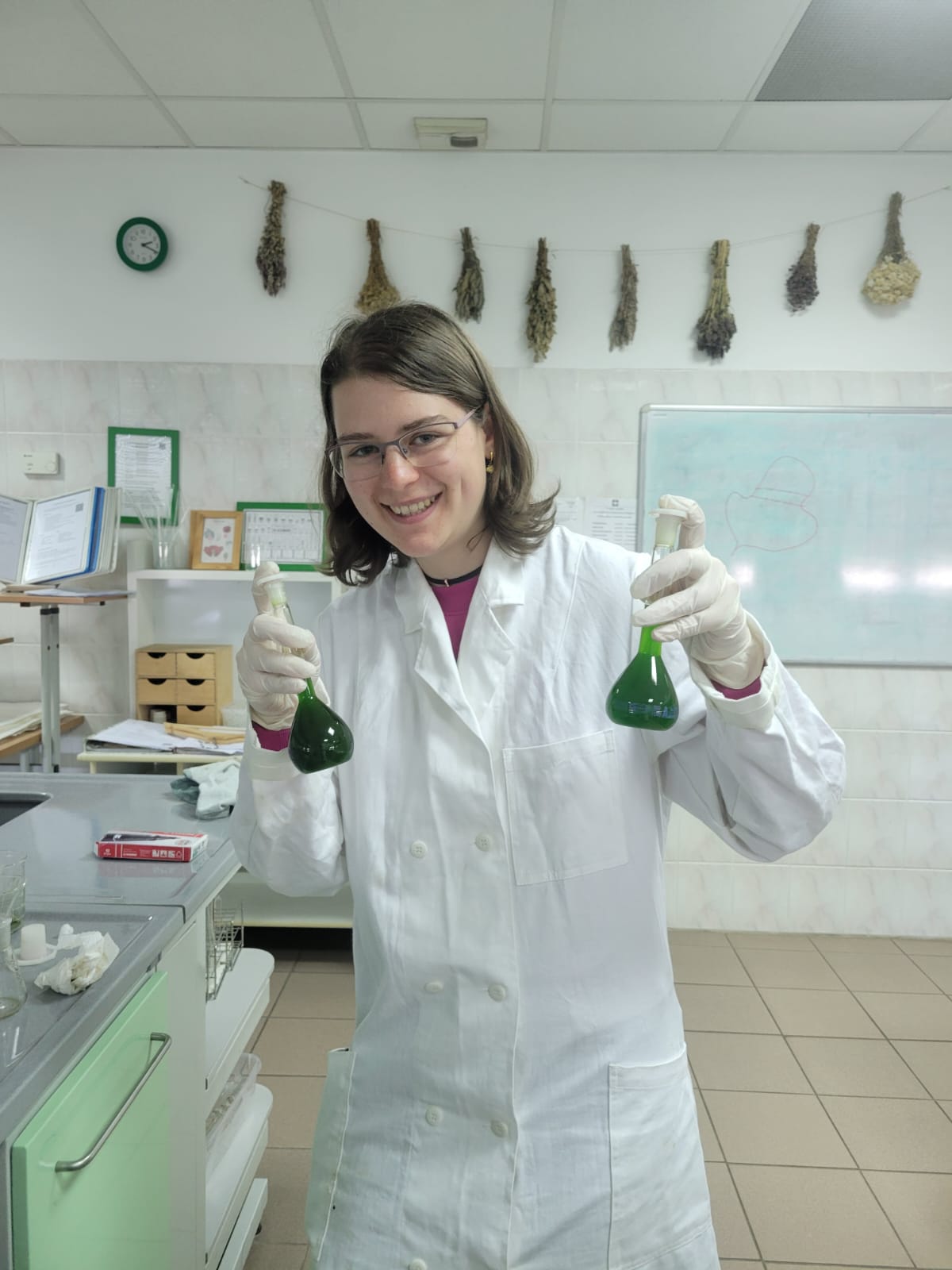
What is the culture of the university?
The university culture overall is fine, you can definitely see and feel that students are connected with each other. In the summer, everyone sits and parties on the campus grass. My own lecturers were overall nice and approachable, but very different from WUR lecturers. Engagement with local students was very hard. First of all, the course offer I followed was only for Erasmus students so with my courses I had no interaction with local students. There were also not many, if any, extracurricular activities where I felt welcome or invited as an international student. The level of English from lecturers or local students was less than I expected, especially being used to use of English at WUR. The rules the lecturers followed were also quite different from what I’m used to, privacy rules are different so a lot of the lecturers wouldn’t share their PowerPoints, which is not usually the case at WUR.
What does the university offer students additionally?
A lot of the university buildings have a cafeteria that is open from 12:00-16:00, I only ate at the canteen next to the Dendryt dorm building, because that’s where I was living but the food offer was extensive and I didn’t eat anything I didn’t like there. This canteen was always very heavily used by students, which didn’t surprise me. There is also a café in the library that also offers pizzas and other food, the coffee and food is great there too and while a bit dated, the interior is very cozy. Additionally, there is a sports centre on campus with a gym, swimming pool and indoor courts where the ESN held a sports Friday event almost every week. The library is also a great place to study or meet for group projects, as there are different sections for talking volumes (quiet area, group area). The section for English books was only one shelf though so I did not make use of borrowing books. Lastly, I extensively used the laundry room in my Dendryt dorm building, which had 2 washing machines and one dryer, which you had to reserve individually at the reception beforehand. You can’t use your own detergents but I had no skin or smell problems with the dorm’s detergents.
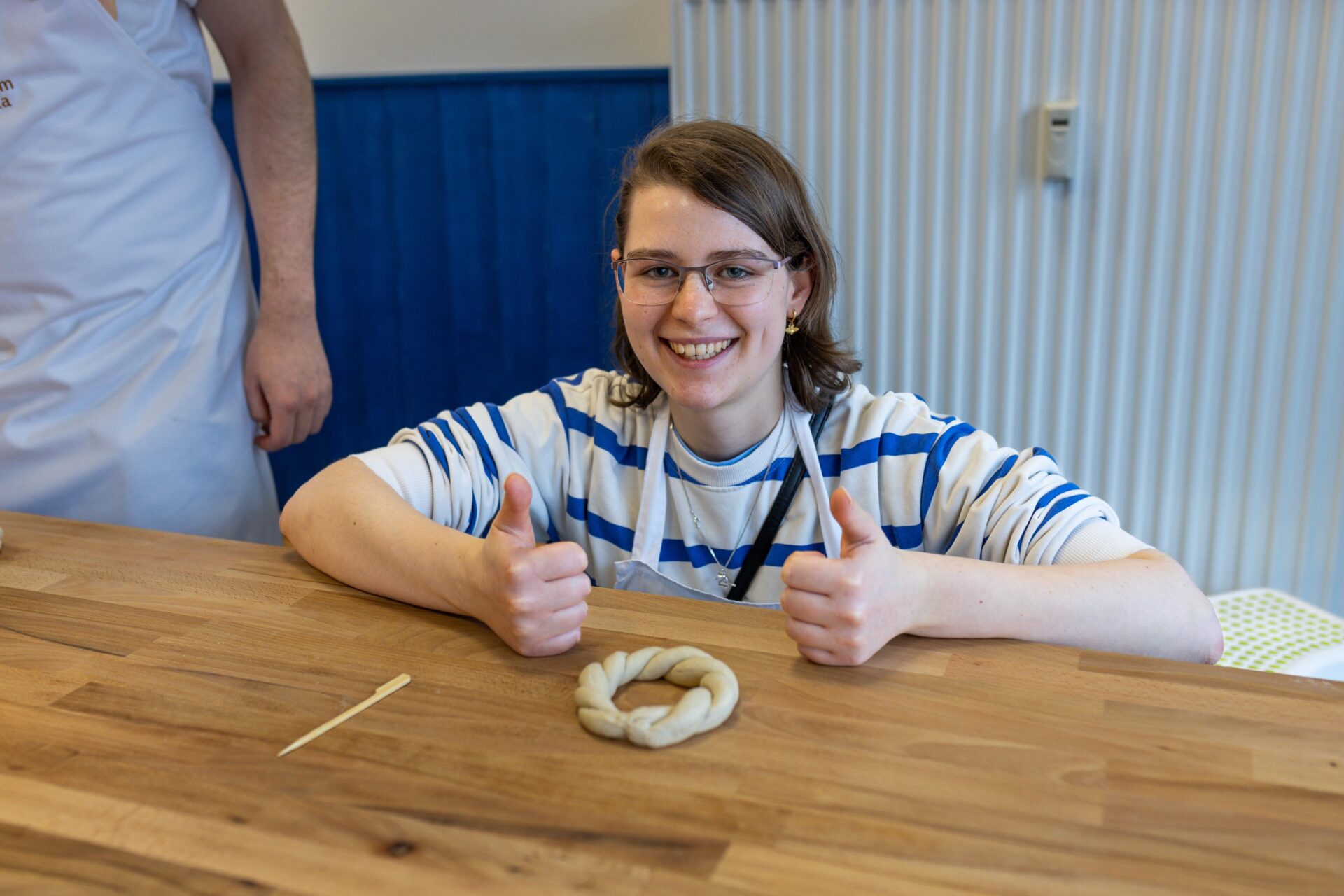
5. Housing-traveling-living
What are the possibilities for housing?
When registering at the university, I had the option to apply for housing on campus, which consists of several small-scale flats that are on the campus close to the classes. The most common rooms were 2- and 3-person rooms. There was also the option of residing in a 2-person room on your own or occupying a 3-person room with 2 people, with a more expensive rate. I myself was housed in the Dendryt building, in a 3-person room on the 3rd floor. I paid 510 PLN per month.
What is the culture like?
Polish people might seem stand-offish and grumpy at first, but this is often just a mask for strangers, they are truly just practical and hardworking people who mostly reserve a smile for friends and family. I think the culture might seem similar to Dutch culture at first, but there are a lot of differences in habits and manners which I found out only because I had a Polish roommate, who was lovely. While it is becoming more common, most people outside of the university (and also quite some inside) do not speak English at all or very, very sparsely. Cuisine is relatively simple, just like Dutch cuisine, and it is mostly centred around meat, cabbage and potatoes.
Could you give some information about public transport infrastructure?
Public transport in Warsaw is quite similar in structure to the Netherlands, with some differences. Overall, the system works great and there is enough availability of vehicles so it is very easy to get around with public transport. You can use your Polish student card as a subscription holder, I bought a subscription for 3 months for zone 1 and 2 (zone 1 centre+outskirts, zone 2 further outskirts warsaw) for 210 PLN. You can also buy a 20, 75 or 90 minute card at a ticket machine or in the jakdojade app on your phone, which you can validate in for example a bus ticket machine or its QR-code. Warsaw has a lot of bus lines, trams in the centre and 2 metro lines. Taxis are also everywhere so if you have an uber or bolt app, you can get a taxi very easily and the prices are also not that bad. From the campus to the airport is around 28 PLN.
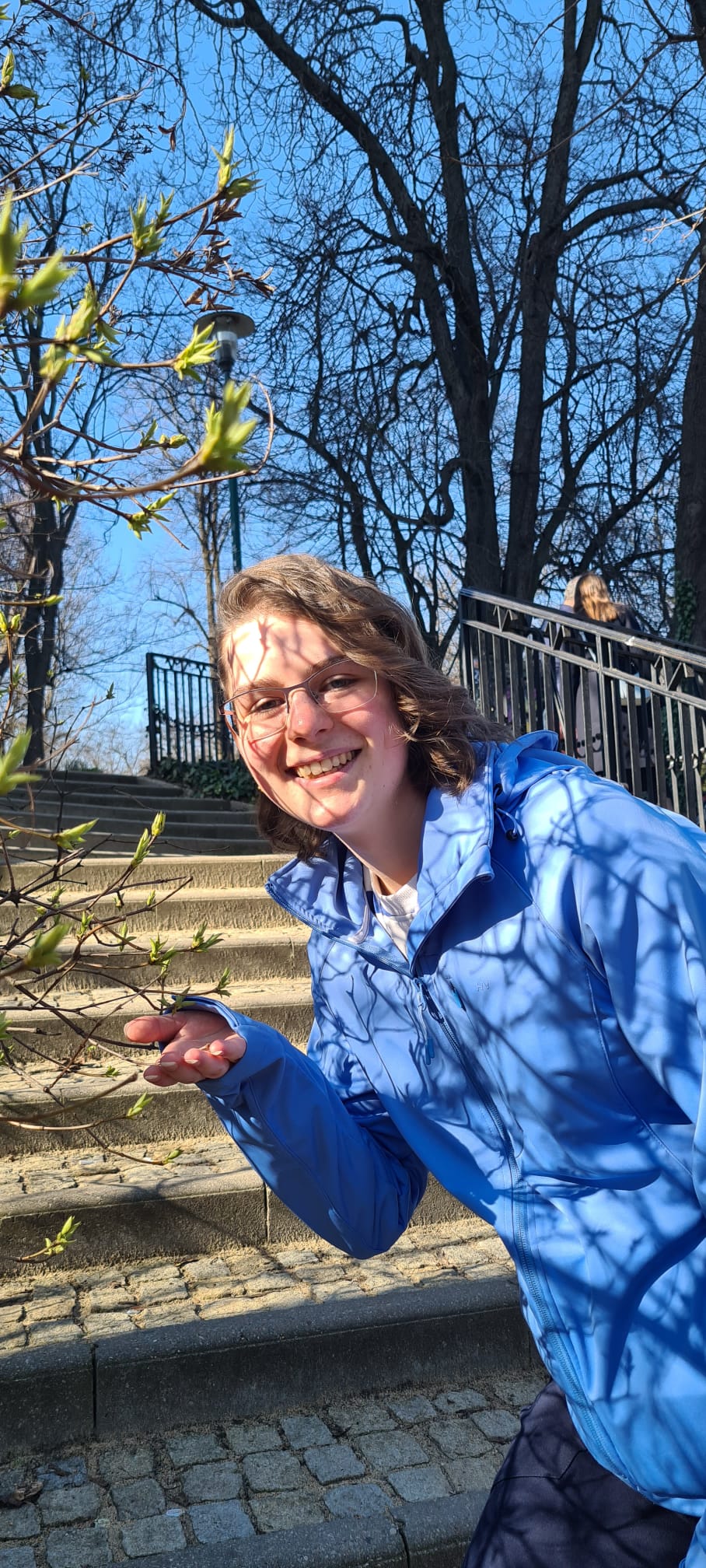 6. Expenses
6. Expenses
Can you give an indication of your expenses for/during your exchange?
1 EUR ~ 4.3 PLN
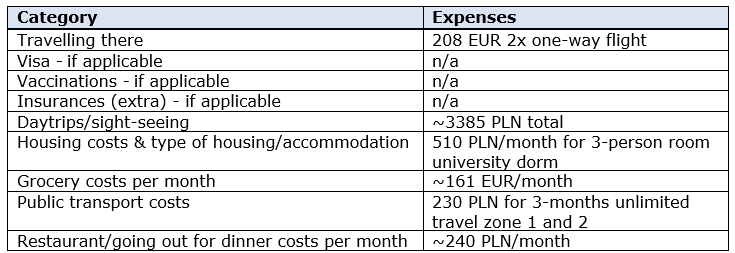
The price levels were in general [higher; lower; equal] in comparison to in the Netherlands:
Lower. Groceries were, in my opinion, only slightly lower than in the Netherlands but this dependent on the product. In general, fruits and vegetables were quite similar in price but other items such as chocolate, crisps, rice, milk etc. were slightly lower.
Additional remarks regarding expenses?
Going out for dinner was a lot cheaper than in the Netherlands, public transportation as well.
7. Free time
What are must-sees in the area?
In Warsaw itself I definitely recommend spending any free time exploring any of the numerous city parks, especially Lazienki Krolewski, which is one of the biggest. In the centre, there is also an amazing wine bar that is a must-visit for any wine lover: Niewinność Wine Bar, the owner is amazing and can be seen dancing with the customers after the official opening hours.
What does not appear in a travel guide, but is definitely worth seeing/doing?
Warsaw is a great train hub to travel to other cities in relatively little time. I definitely recommend travelling to Kraków, Wroclaw and Gdansk by train. When you have time and money to rent a car, Biesczady national park, Dunajec river gorge, Morskie Oko, Zakopane and Dolina Chocholowska are amazing places to see.
8. Challenges & best moment abroad
Any challenges? How did you deal with them?
My most prominent challenge was dealing with the dorm administration lady (Dorotha) regarding our room situations. In our first room we were dealing with bed bugs and had to move rooms multiple times, there was really bad communication to us about how and when to move rooms and the steps we had to undertake. She did not speak English and was often screaming at me and my other non-Polish roommate. Me and my roommates tried to ask for help via multiple channels (dorm, university, international office), but received little to no response so the way we dealt with it, was give each other support when we needed it. (mental support, moving stuff to and from rooms, etc.).
Best memory?
One of my best memories was going to the bank club for an Erasmus club night with a group of other Erasmus students from SGGW and going to Chicas & Gorilla’s bar after, where I met someone I would go on dating for the rest of the semester.
8. Contact Details
Would you like to ask Esmee more questions about her exchange?
Send her a mail: Esmee.venema@outlook.com

